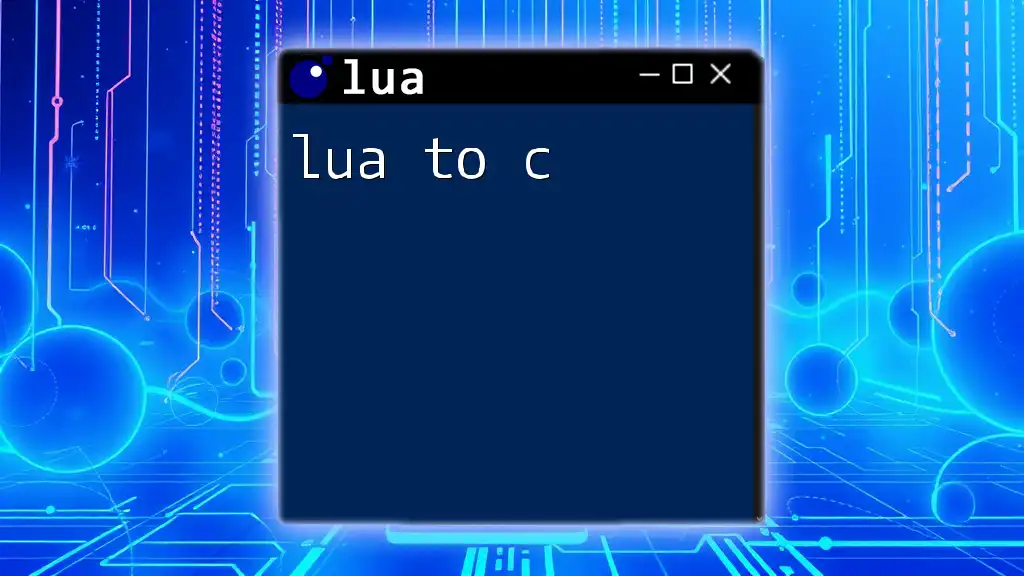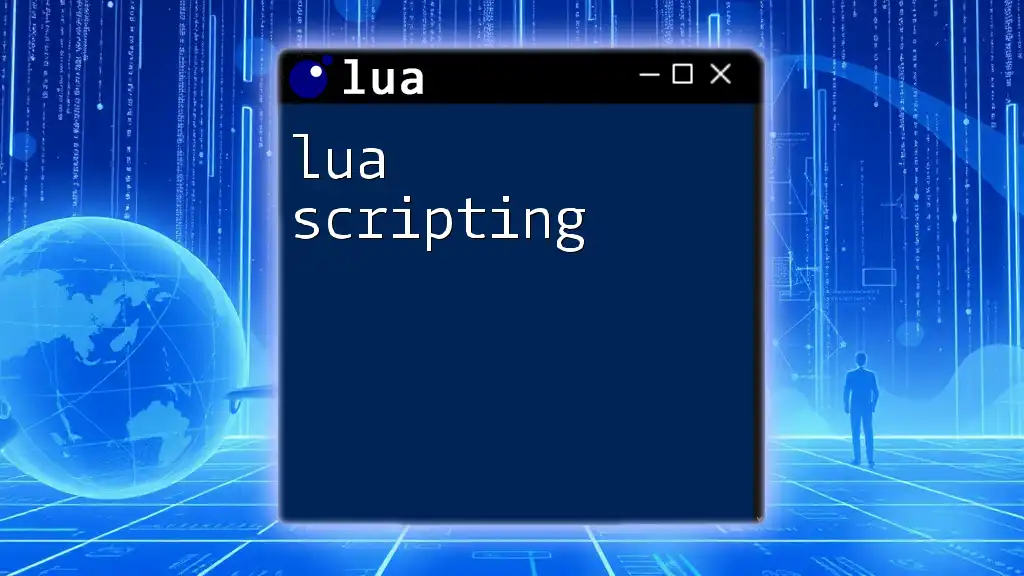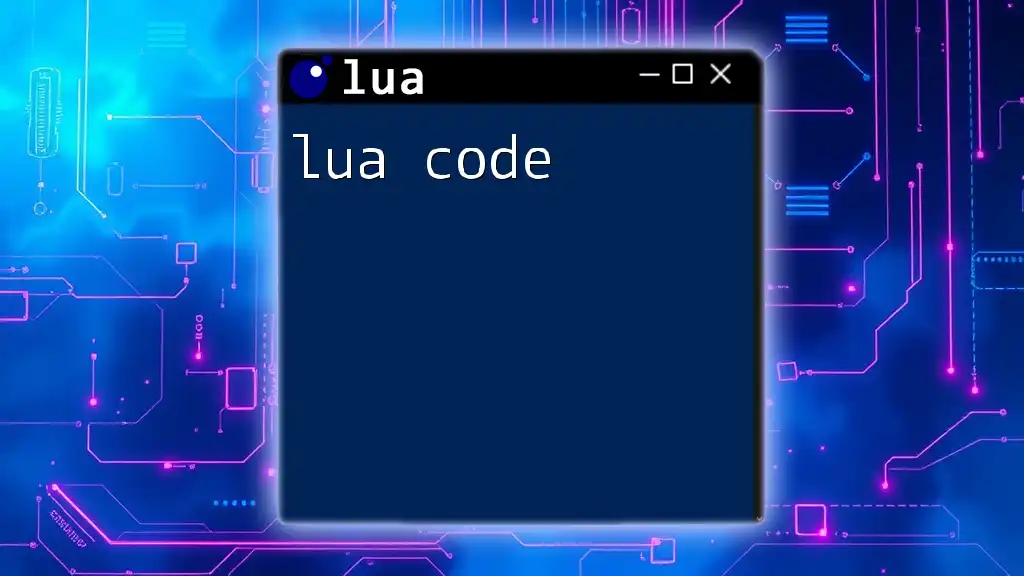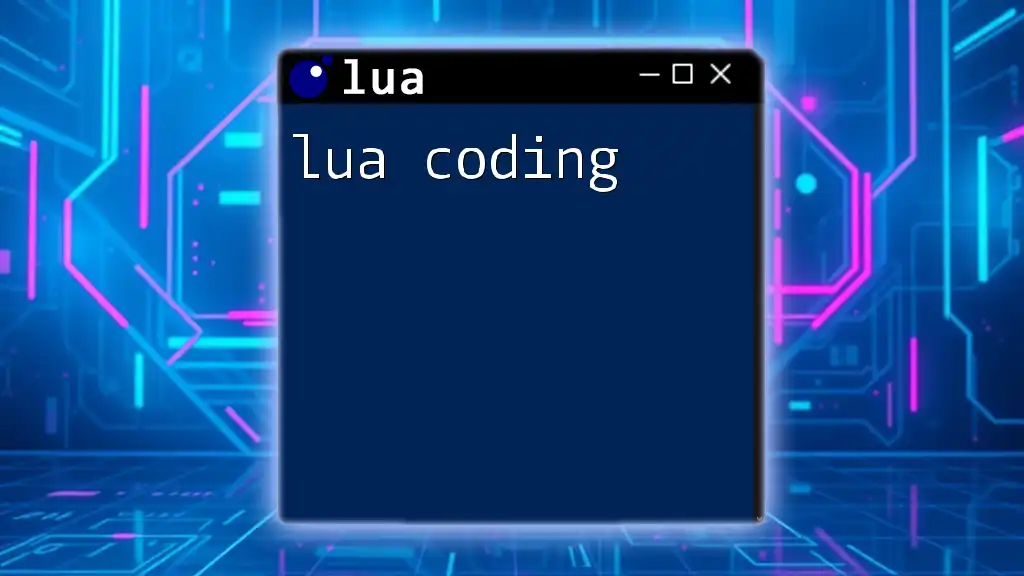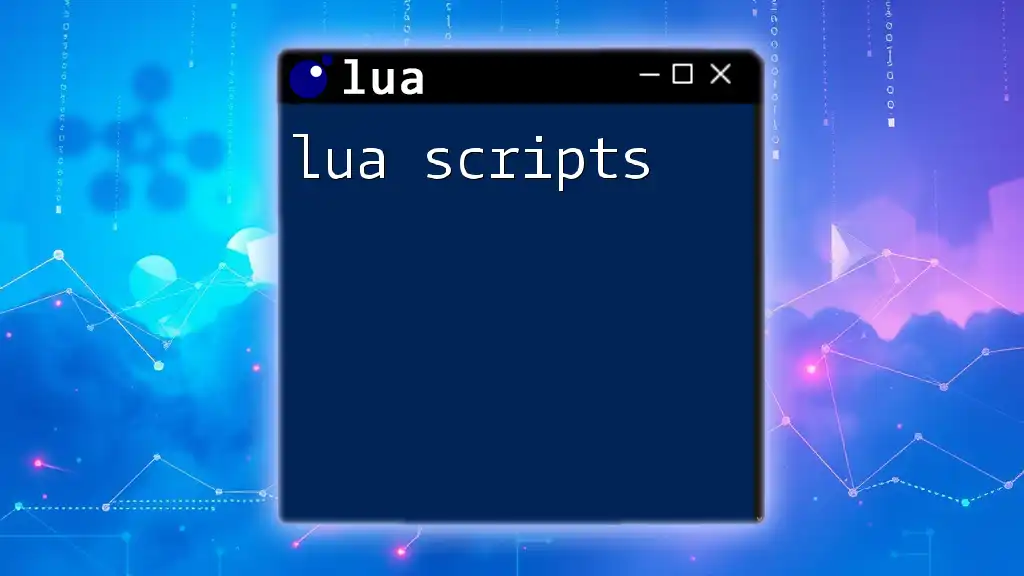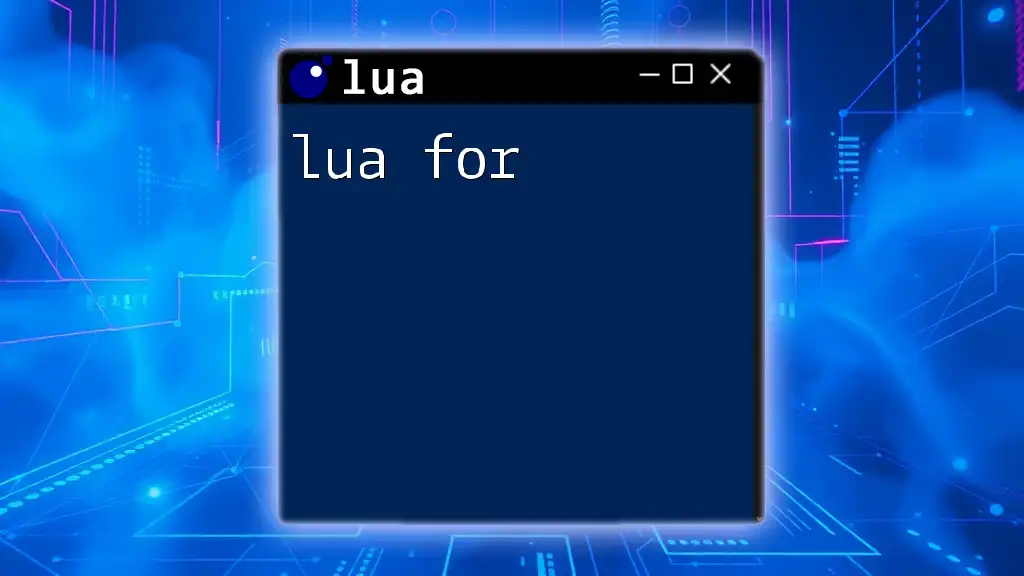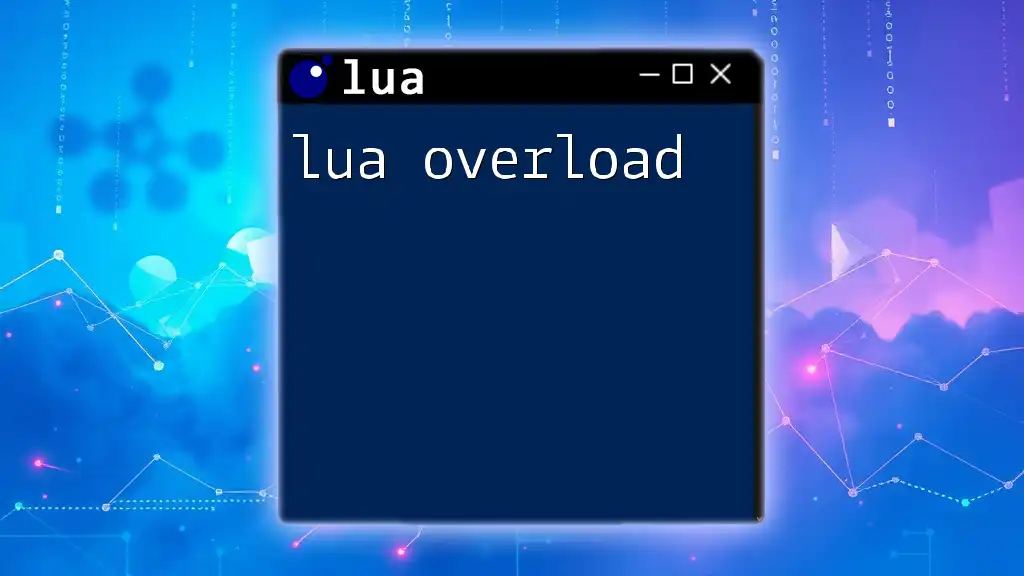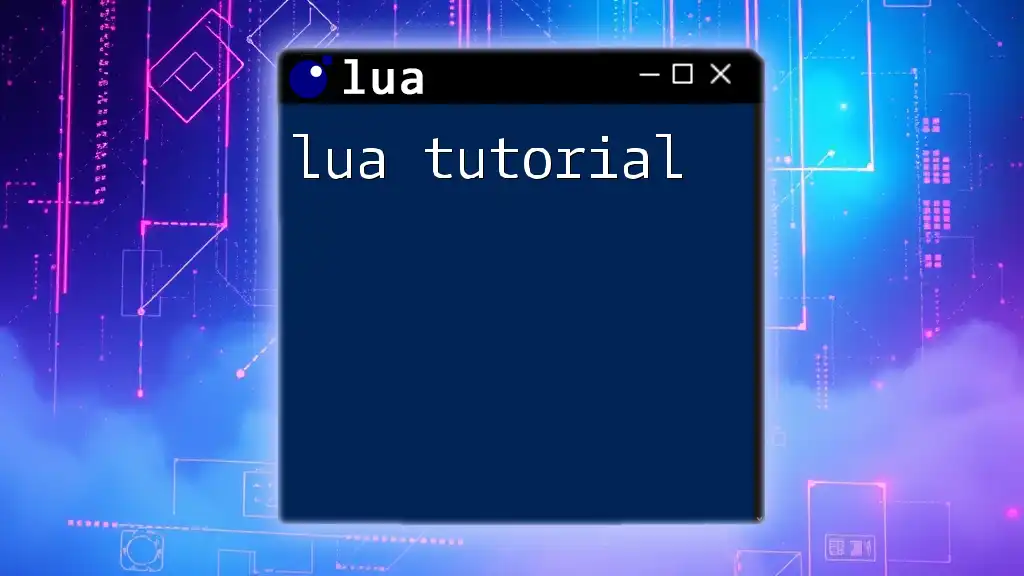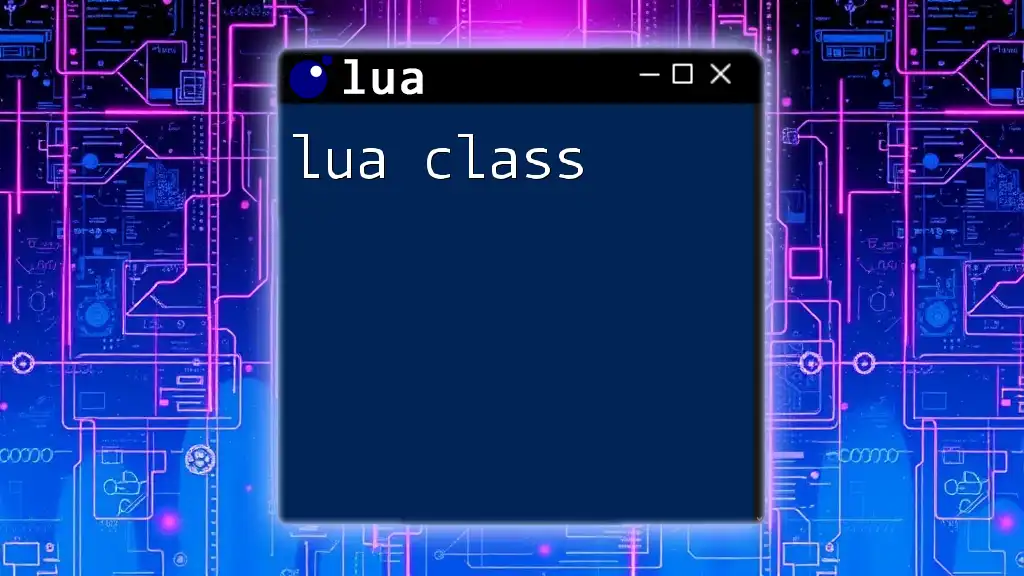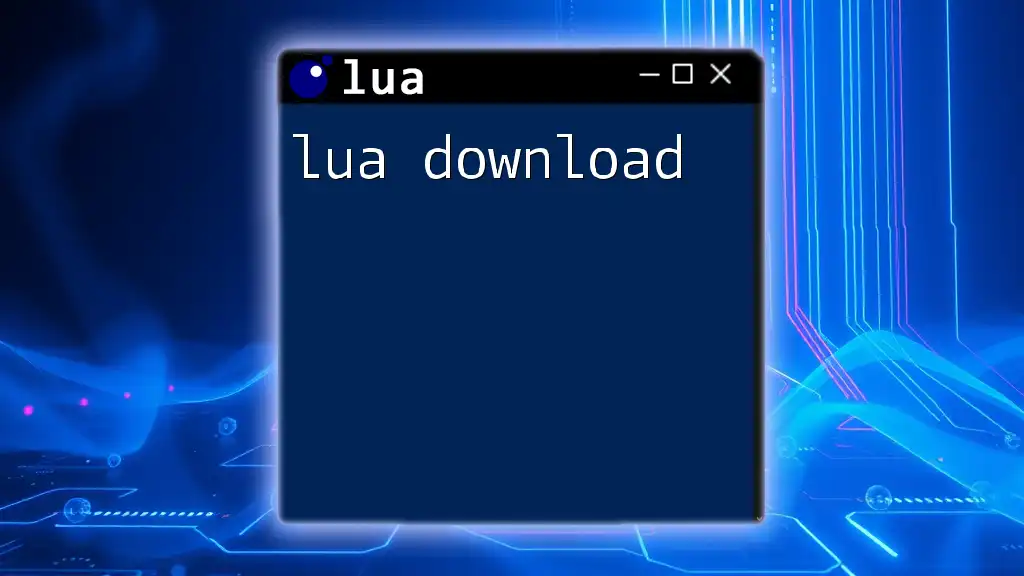The Lua to C transition involves embedding Lua scripts within C programs, allowing developers to leverage Lua's scripting capabilities alongside C's performance, as demonstrated in the following code snippet that initializes the Lua interpreter:
#include <lua.h>
#include <lualib.h>
#include <lauxlib.h>
int main() {
lua_State *L = luaL_newstate(); // Create a new Lua state
luaL_openlibs(L); // Load Lua libraries
luaL_dofile(L, "script.lua"); // Execute a Lua script
lua_close(L); // Close the Lua state
return 0;
}
What is Lua?
Lua is a lightweight and embeddable scripting language that boasts a simple syntax and is designed to be integrated seamlessly with other programming languages. Its characteristics make it an excellent choice for a variety of purposes, from game development to web applications.
Characteristics of Lua
- Lightweight and Embeddable: Lua has a small footprint, making it easy to integrate into applications without significant resource demands.
- Simple Syntax: This makes Lua accessible for beginners while still being powerful enough for experienced developers.
- Integrated Design: Lua is explicitly designed to work well with C and other languages, facilitating easy integration.
Use Cases
Lua finds application across several domains, including:
- Game Development: It is widely used in games like Roblox and World of Warcraft for scripting game mechanics and AI.
- Web Applications: Frameworks such as Nginx employ Lua for handling web server extensibility.
- Data Processing: Lua can efficiently handle data manipulation tasks, making it a valuable tool in data-intensive applications.

Understanding C
C is a powerful, high-performance language known for its low-level memory manipulation and extensive use in system programming.
Characteristics of C
- High-Performance Language: C is close to hardware, providing the speed and efficiency required for resource-constrained applications.
- Low-Level Memory Manipulation: This allows for intricate program control, enabling developers to manage system resources directly.
- Extensive Use in System Programming: Much of the modern software stack, including operating systems, is built using C.
Use Cases
C's versatility is reflected in its diverse applications:
- Operating Systems: Almost all popular operating systems are written in C, making it indispensable in this field.
- Embedded Systems: The language is used for programming microcontrollers and other hardware systems due to its efficiency.
- Performance-Critical Applications: C is often the language of choice when speed is of utmost importance.
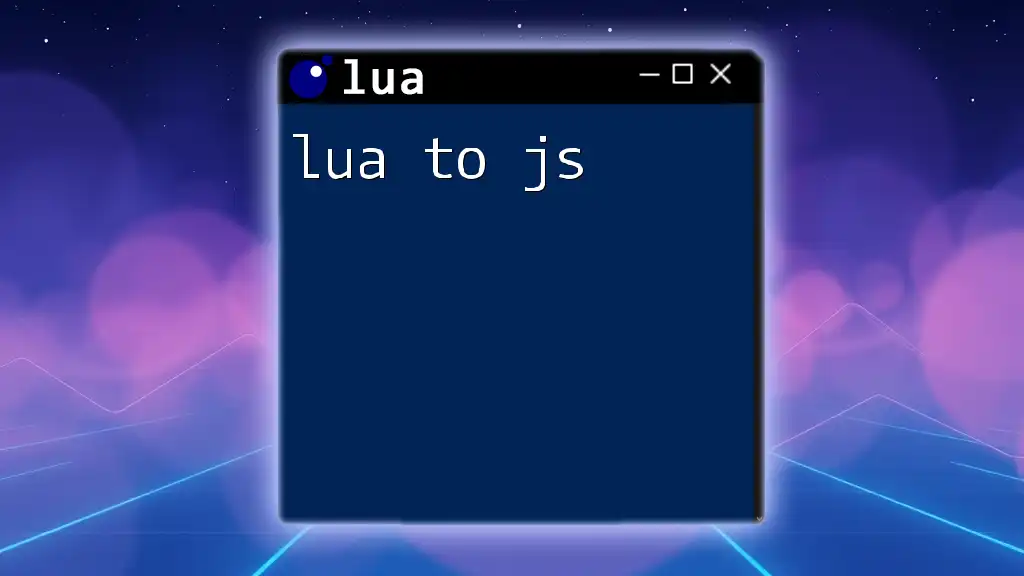
Why Use Lua with C?
Combining Lua with C can lead to substantial advantages in project development. Here are some reasons why integrating these languages is beneficial.
Advantages of Integrating Lua and C
- Performance Optimization: C’s speed combined with Lua’s ease of scripting can lead to applications that are both fast and flexible.
- Easier Scripting Capabilities: Lua simplifies the coding requirements, allowing developers to write scripts more rapidly while leveraging the underlying C performance.
- Rapid Development Prototyping: By integrating Lua, developers can create prototype versions of applications faster, testing features without diving deep into C.
Typical Scenarios for Integration
There are common use cases for combining Lua with C, including:
- Game Engines: Many game engines use Lua for scripting game logic while relying on C for performance-critical components.
- Custom Scripting Solutions: Applications can expose customizable scripts to users, enabling them to modify behavior without recompiling the C code.
- Data Manipulation Setups: Lua can handle data processing tasks efficiently, while C can manage the heavy lifting.
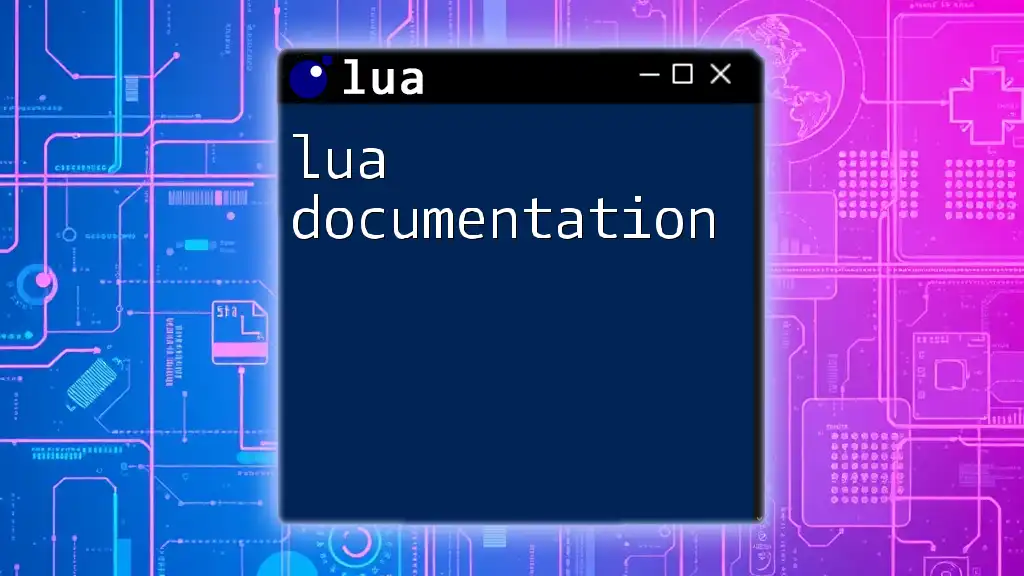
Setting Up Your Environment
Setting up a suitable environment is crucial for efficient development. Here’s how to get started.
Installing Lua
To install Lua, follow the appropriate steps for your operating system:
- Windows: Download the LuaBinaries from the official Lua website and extract them. Add Lua’s path to your system environment variables.
- macOS: Use Homebrew for easy installation by running `brew install lua`.
- Linux: Most distributions have Lua available via their package managers, e.g., for Ubuntu: `sudo apt-get install lua5.3`.
Installing C Compiler
Setting up a C compiler is essential for compiling C code.
- GCC: Most Linux distributions come with GCC pre-installed. For installation, use your package manager.
- Clang: Available for macOS and Linux, install via Homebrew or your respective package manager.
- Windows: Use MinGW or Visual Studio to set up your development environment.
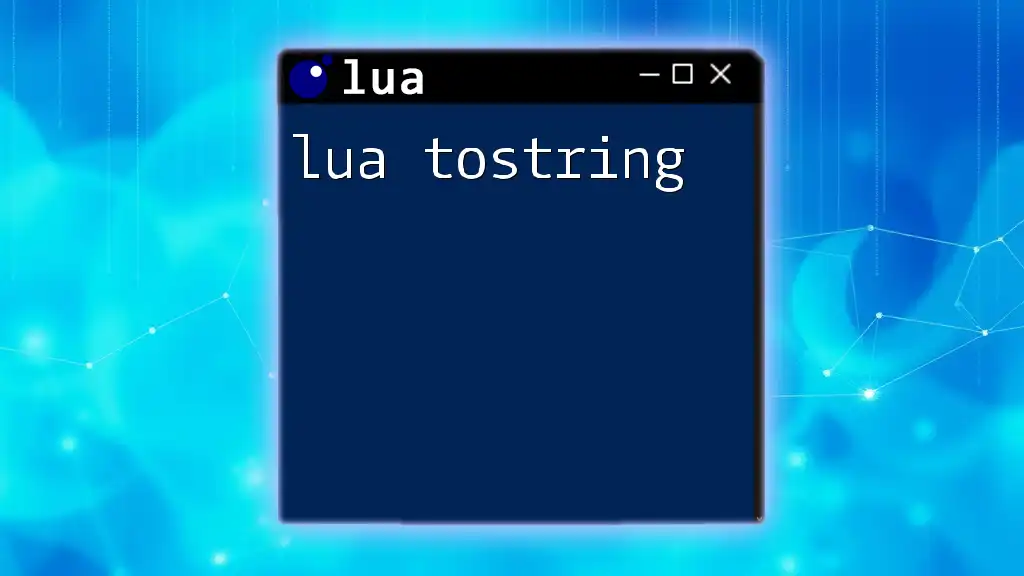
Basic Lua Syntax Review
Familiarizing yourself with Lua syntax is beneficial. Here’s a brief overview.
Variables and Data Types
In Lua, defining variables is intuitive:
local x = 10
local name = "Lua"
Control Structures
Lua supports standard control structures. Here’s an example of an if-else statement:
if x > 5 then
print("x is greater than 5")
else
print("x is 5 or less")
end
Functions
Defining functions in Lua is straightforward:
function greet(name)
return "Hello, " .. name
end
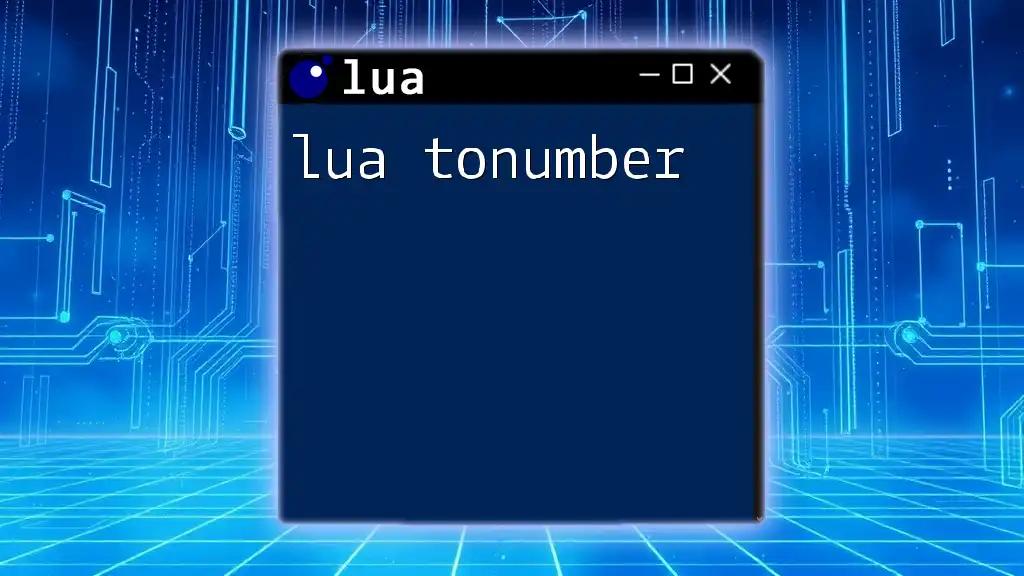
Calling Lua from C
Interfacing between Lua and C requires an understanding of the Lua C API.
Introduction to Lua C API
The Lua C API provides functions that enable C code to interact with Lua, offering a powerful mechanism for embedding Lua into your applications.
Basic Setup
Set up the Lua state in your C code using the following code:
#include <lua.h>
#include <lualib.h>
#include <lauxlib.h>
lua_State *L = luaL_newstate();
luaL_openlibs(L);
Loading and Executing Lua Scripts
Loading and executing Lua scripts from C is simple. Here’s how to do it:
if (luaL_dofile(L, "script.lua") != LUA_OK) {
fprintf(stderr, "Error: %s\n", lua_tostring(L, -1));
}
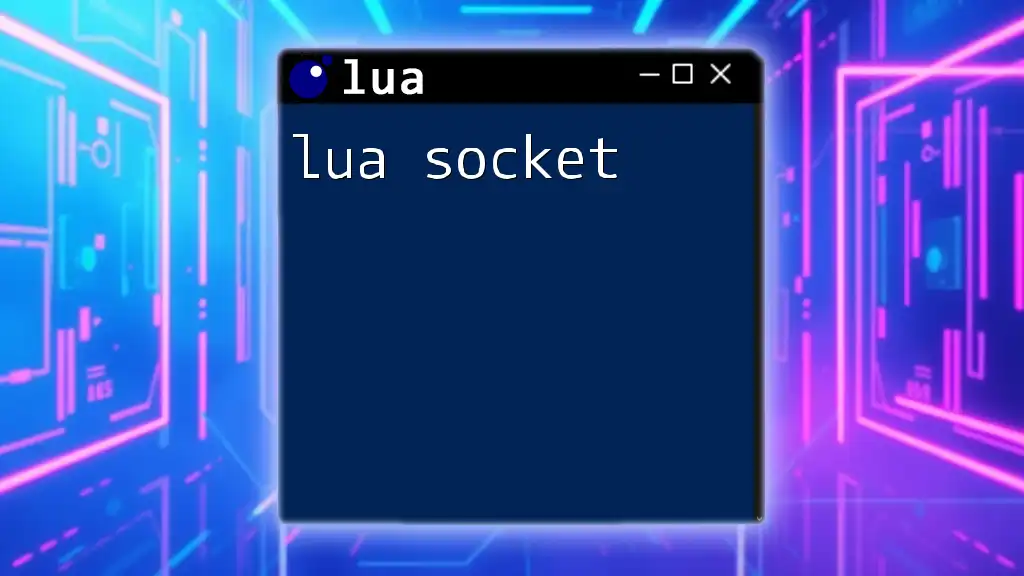
Passing Data Between Lua and C
Understanding how to pass data is crucial for effective communication between the two languages.
Basic Data Types
Lua handles several data types, including numbers, strings, and tables, which can be passed between Lua and C.
Passing Arguments to Lua Functions
To call a Lua function from C and pass arguments, follow this example:
lua_getglobal(L, "greet");
lua_pushstring(L, "World");
lua_call(L, 1, 1);
const char* greeting = lua_tostring(L, -1);
Returning Values to C
After calling a Lua function, you might want to capture the return value:
lua_pop(L, 1); // Clear the return value from the stack
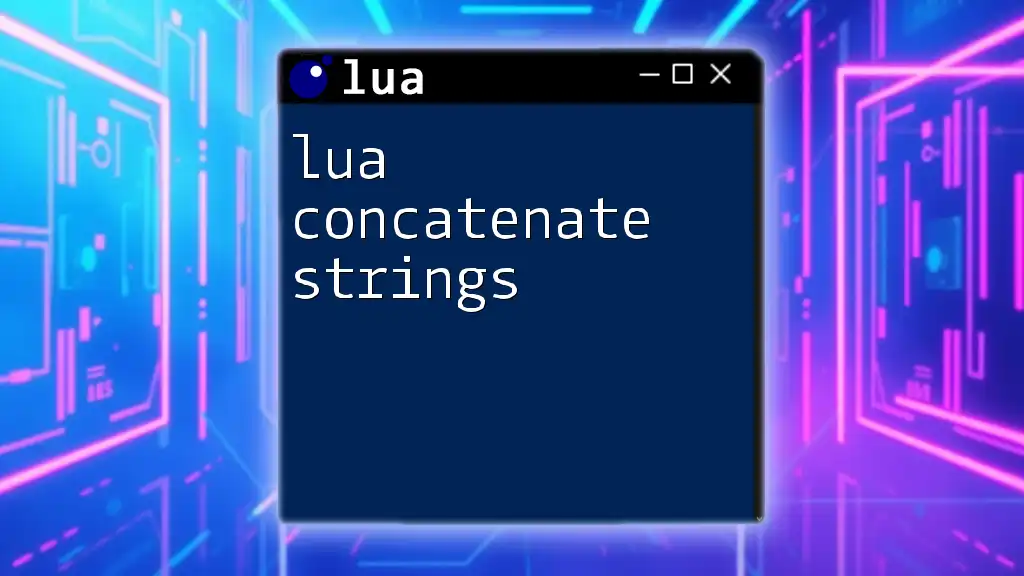
Advanced Lua-C Integration Techniques
For more complex scenarios, additional techniques are necessary for seamless integration.
Creating C Functions Callable from Lua
You can register C functions to be callable from Lua. Here's how:
Explanation of the Registration Process
To expose a C function to Lua, register it within the Lua state.
Example: Registering a C Function
Here's an example of how to register a C function that adds two integers:
int add(lua_State* L) {
int a = luaL_checkinteger(L, 1);
int b = luaL_checkinteger(L, 2);
lua_pushinteger(L, a + b);
return 1; // Number of return values
}
lua_register(L, "add", add);
Handling Complex Data Structures
Creating and manipulating userdata types in Lua involves a deeper understanding of memory management. Use `lua_newuserdata` to allocate memory for complex structures and manage them effectively across Lua and C.
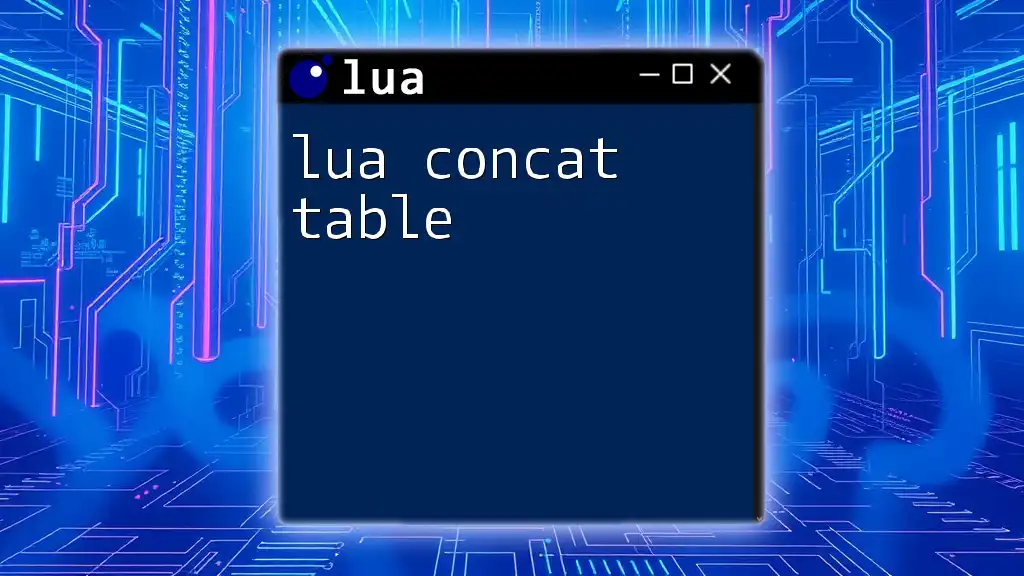
Debugging Tips and Tricks
When integrating Lua and C, you may encounter some challenges. The following tips could be helpful.
Common Errors in Lua-C Integration
Errors often arise from stack mismanagement or type mismatches. Use the following practices to minimize issues:
- Handle Stack Errors: Always check the Lua stack and handle potential errors properly for robust integration.
- Debugging Tools: Utilize tools like `gdb` or `valgrind` to identify issues in memory allocation and code flow.
Best Practices
Adhering to best practices can prevent many issues:
- Managing Lua State Properly: Always ensure that the Lua state is correctly initialized and cleaned up to avoid memory leaks.
- Naming and Organizing Code: Follow a logical naming convention and structure the code base for better maintainability and readability.
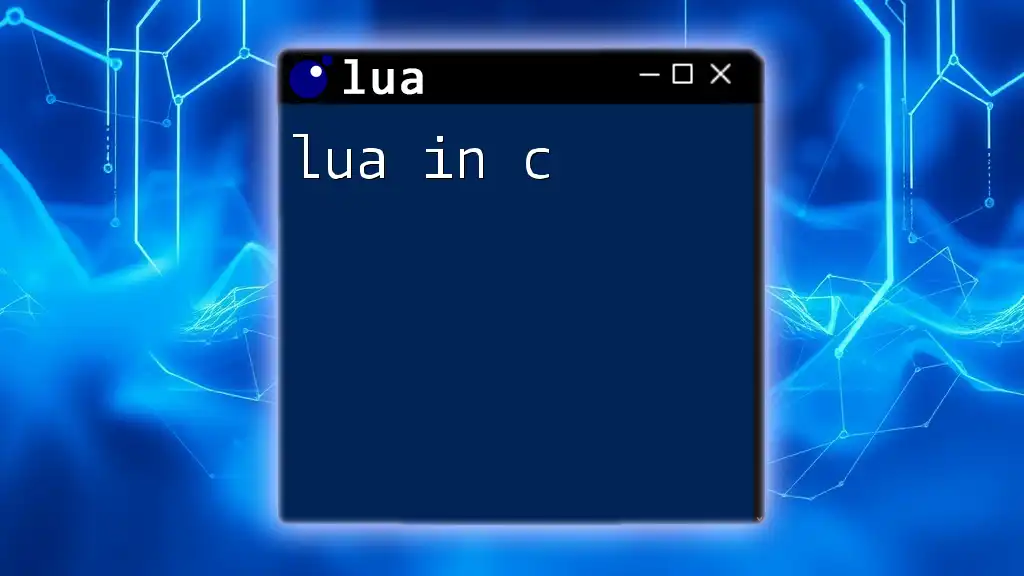
Conclusion
Understanding the integration of Lua with C opens up a world of potential for developers. The benefits of performance optimization, rapid prototyping, and enhanced scripting capabilities make this a valuable skill. Whether you're developing games, applications, or scripts, exploring the intersection of these languages can lead to innovative solutions and improved workflow.
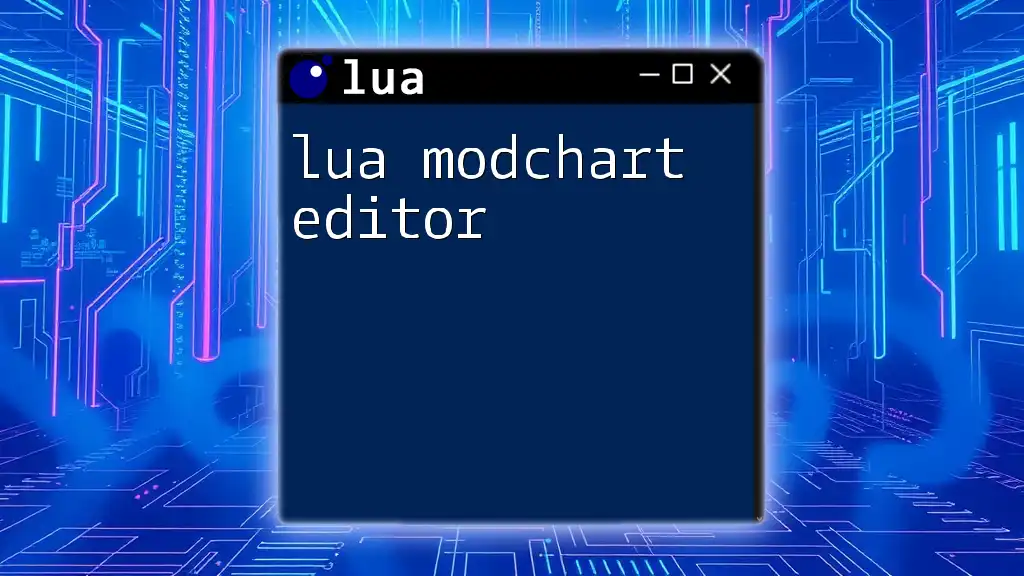
Call to Action
Try experimenting with your own projects that integrate Lua and C. Share your experiences and challenges in the comments below. Your journey in mastering these languages can be even more rewarding with community support and interaction!

